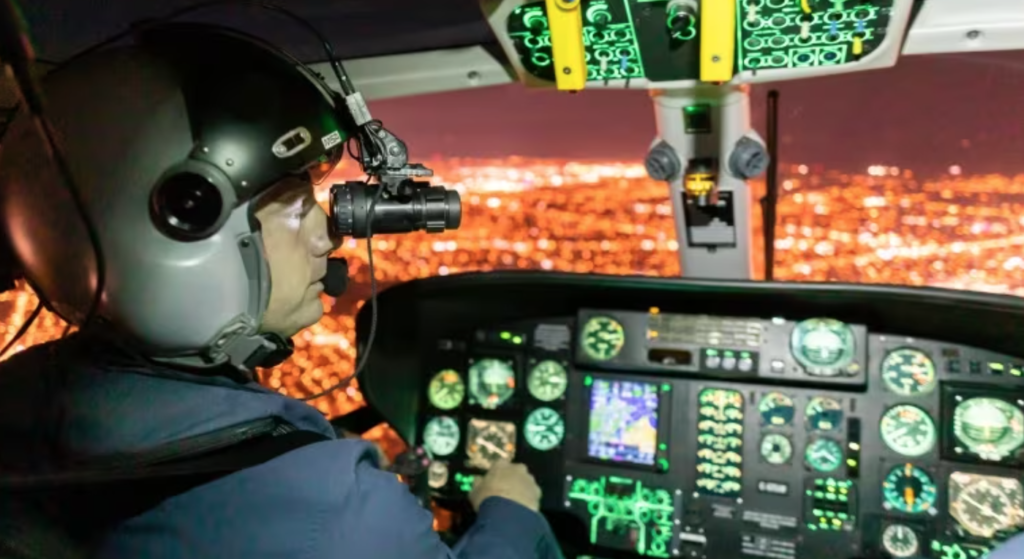Aviation staff with British Columbia Wildfire Service will be offered night vision training, allowing for helicopter firefighting in the dark. Erika Berg, BCWS info officer, told Castanet News that the training had been planned for spring of 2023 but had to be delayed.
“We had quite an early start to the season so that training was postponed and it’s now being set for this upcoming spring,” said Berg. The BCWS tested helicopter night vision technology in 2019 and again in 2020, first on detection flights and then during bucket operations in the Okanagan.
Kelsey Wheeler, operations manager and pilot for Talon Helicopters, said the company secured a 5-year contract with Alberta Wildfire using night vision goggles (NVG) for helicopter operations. “The helicopter is an AS365,” said Wheeler. “We got them in 2018 when they joined our fleet and we upgraded them to NVG capability.”

The Airbus AS365 flew several fires this year, including incidents near Little Red River Cree Nation, Edson and East Prairie Metis Settlement, dropping water on fires. Talon also flew them on recon flights and personnel transport.
Alberta’s now begun a 5-year contract to trial the helicopter, and Talon told the CBC News it completed a trial with BC Wildfire. Aaron Barnhardt, a provincial helicopter specialist with Alberta Wildfire, said it’s a very fast helicopter. “But the big thing is the night vision technology,” he said. “People in the helicopter have night vision goggles on. They amplify light up to 60,000 times, which allows us to navigate, see hazards, identify active parts of a wildfire.”
The AS365 is equipped with a 900-litre water tank (almost 240 US gallons), which can be filled in as little as 20 seconds, and its internal and external lighting has been modified to work with the night vision goggles. Barnhardt said flight crews require specialized training to use the NVG equipment.
Mike Flannigan, a Thompson Rivers University professor, said nighttime helicopter operations along with ground crews could be an optimal approach. “You can’t do it just with helicopters,” he said, “you need to use ground crews as well.”
